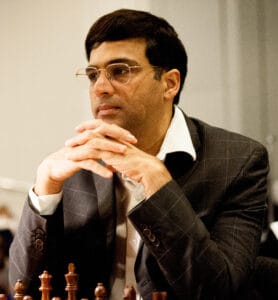
Modern Introduction to Chess (World of Chess)
Chess, often hailed as the “game of kings,” boasts a rich history that spans over a millennium. Originating in Northern India during the Gupta Empire, chess has evolved remarkably from its early form, known as chaturanga. As the game spread through Persia, the Islamic world, and eventually Europe, it underwent various transformations that shaped it into the modern chess we recognize today a The world of chess is a fascinating realm where strategy and intellect collide..

The appeal of chess lies not only in its strategic depth but also in its ability to act as a powerful mental exercise. Engaging in chess hones critical thinking, enhances problem-solving skills, and improves memory. These cognitive benefits have cemented chess as more than just a pastime; it is a tool for mental development and education. The game’s complexity and the vast number of possible moves ensure that every match is a unique battle of wits, providing endless opportunities for learning and improvement.
Moreover, chess has a unique capacity to bridge cultures and generations. Its universal rules and the shared understanding of its strategic principles make it a common language among players worldwide. In the world of chess, every move counts and can alter the course of the game. From grandmasters to novices, chess enthusiasts find common ground in their appreciation for the game. International tournaments, such as the World Chess Championship, attract participants from diverse backgrounds, showcasing the game’s global reach.
Throughout history, chess has maintained its relevance, adapting to the changing times while preserving its fundamental essence. The advent of digital platforms and online play has further expanded its accessibility, allowing players from all corners of the globe to connect and compete. This enduring popularity highlights chess’s significance not just as a game, but as a cultural and intellectual phenomenon that continues to inspire and challenge individuals across generations.
The Art of Online Chess Playing
Chess is more than just a game; it is an intricate dance of strategy, foresight, and mental acuity. The art of online chess playing involves a deep understanding of various strategies, from the classic opening moves to the complex endgame tactics. Each phase of the game requires a unique set of skills and a strategic mindset.
One of the foundational strategies in chess is the opening. The opening phase sets the stage for the rest of the game, and players often learn well-established opening sequences such as the Sicilian Defense or the Queen’s Gambit. These openings are designed to control the center of the board and develop pieces efficiently. Mastering a few reliable openings can give players a strong start and a psychological edge over their opponents.

As the game progresses, the middle game becomes a battleground of tactics and positional play. Players must balance attacking and defensive maneuvers while maintaining a strong position. Famous games, such as the 1972 World Championship match between Bobby Fischer and Boris Spassky, exemplify the intensity and complexity of this phase. Notable moves in such games often become legendary, studied by players seeking to enhance their understanding of high-level play. Competing in the world of chess requires intense focus, patience, and foresight.
The endgame is where the true artistry of chess is often revealed. With fewer pieces on the board, precision and calculation become paramount. Endgame strategies, like the opposition and the concept of zugzwang, can turn the tide of a match. The mental challenges of the endgame test a player’s endurance and strategic depth.
Engaging in chess offers numerous cognitive benefits. Regular play improves problem-solving skills, enhances memory, and fosters critical thinking. To improve one’s chess playing skills, consistent practice is essential. Analyzing past games, studying famous matches, and solving chess puzzles can all contribute to a deeper understanding of the game. Additionally, playing against a variety of opponents, whether through online platforms or local clubs, can provide diverse experiences and sharpen one’s strategic approach.
Modern Online Chess Training Techniques
Contemporary chess training has evolved significantly, leveraging technology to create more effective and personalized methods for improving players’ skills. One of the most prominent advancements is the use of online platforms. Websites and apps like Chess.com, Lichess, and others provide players with access to a vast array of resources including puzzles, tutorials, and games against opponents of varying skill levels. These platforms also offer tools for analyzing games, allowing players to learn from their mistakes and track their progress over time.
 Chess engines have become indispensable in modern training. Programs such as Stockfish and AlphaZero provide deep analysis and insights that were previously unattainable. These engines can evaluate positions with incredible precision, offering players the opportunity to understand complex positions and improve their strategic thinking. By studying engine-generated analysis, players can uncover new strategies and refine their tactics, gaining a competitive edge.
Chess engines have become indispensable in modern training. Programs such as Stockfish and AlphaZero provide deep analysis and insights that were previously unattainable. These engines can evaluate positions with incredible precision, offering players the opportunity to understand complex positions and improve their strategic thinking. By studying engine-generated analysis, players can uncover new strategies and refine their tactics, gaining a competitive edge.
Personalized coaching remains a cornerstone of effective chess training. Unlike generic instructional materials, personalized coaching tailors the training regimen to the individual’s strengths and weaknesses. Coaches can provide specific feedback, create customized study plans, and offer targeted exercises that address particular areas of improvement. The interaction between coach and student fosters a deeper understanding of the game and accelerates the learning process.
Practice and study routines are essential components of any training regimen. Consistent practice helps in retaining knowledge and developing muscle memory for various patterns and tactics. Structured study routines, which might include reviewing famous games, solving tactical puzzles, and playing timed matches, ensure a well-rounded improvement. Regularly setting aside time for these activities is crucial for sustained progress.
Technology has significantly enhanced the way players train and develop their skills. The integration of online platforms, advanced chess engines, and personalized coaching creates a comprehensive training environment that caters to the needs of modern players. By embracing these contemporary techniques, players can achieve higher levels of proficiency and enjoy the rich intellectual rewards that chess offers.
Legends of the Chess World
Throughout the storied history of chess, certain players have risen to iconic status, leaving an indelible mark on the game. Among these, Garry Kasparov, Bobby Fischer, and Magnus Carlsen stand out as titans who have not only achieved remarkable victories but also profoundly influenced the evolution of chess.
Garry Kasparov, hailed as one of the greatest chess players of all time, dominated the world stage from 1985 until his retirement in 2005. Known for his aggressive playing style and deep understanding of strategy, Kasparov’s most notable achievement was his series of matches against the IBM computer Deep Blue, which highlighted the emerging intersection between technology and chess. His contributions extended beyond the board, as he became an advocate for chess education and the use of chess in cognitive development.
Bobby Fischer, an enigmatic genius, redefined the landscape of competitive chess with his unparalleled skills and unique approach to the game. His victory in the 1972 World Chess Championship against Boris Spassky was not merely a personal triumph but also a symbolic moment in the Cold War era, showcasing the intellectual prowess of the United States. Fischer’s legacy is also marked by his innovations in chess theory, particularly in opening repertoires, which continue to influence players to this day.
Magnus Carlsen, the reigning World Chess Champion, represents the modern era of chess mastery. Carlsen’s intuitive play and versatility across various time controls have set him apart as a formidable opponent. His achievements include breaking numerous rating records and bringing a renewed interest in chess through his engaging personality and media presence. Carlsen’s influence extends into the digital age, where he has promoted online platforms and apps, making chess more accessible to a global audience.
These legends of the chess world serve as sources of inspiration for aspiring players, demonstrating that excellence in chess is a blend of skill, creativity, and continuous learning. Their enduring impact on the game ensures that chess remains a dynamic and evolving discipline, capturing the imagination of generations to come.
The Global Online Chess Community
The chess community has seen remarkable growth and diversification over the years, establishing itself as a truly global phenomenon. According to estimates by the International Chess Federation (FIDE), there are approximately 600 million chess players around the world. This expansive player base includes individuals from diverse backgrounds, cultures, and age groups, reflecting the universal appeal of the game.
Chess is played in virtually every country, with significant communities in nations such as Russia, India, China, and the United States. The diversity within the chess community is further amplified by the increasing participation of women and younger players. Initiatives such as the “Chess in Schools” programs and online platforms have significantly contributed to making chess accessible to a broader audience, thereby fostering inclusivity and enthusiasm for the game across different demographics.
Grandmasters dominate the world of chess with their unparalleled skills and deep understanding of the game. International tournaments and events play a crucial role in uniting the global chess community. Prestigious tournaments like the Chess Olympiad, the World Chess Championship, and the Candidates Tournament attract top players from around the world, showcasing their skills on an international stage. These events not only serve as a platform for competitive play but also promote cultural exchange and camaraderie among participants.
Moreover, the advent of online chess platforms has revolutionized the way players engage with the game. Websites like Chess.com and Lichess.org have millions of active users, enabling players to compete against opponents from different parts of the globe in real-time. These platforms also offer resources for training and improvement, further democratizing access to high-quality chess education and fostering a sense of global community.
The integration of technology has enabled the chess community to stay connected and engaged, regardless of geographical boundaries. As the game continues to evolve, the global chess community remains a testament to the enduring appeal and unifying power of chess, transcending cultural and linguistic barriers to bring people together in pursuit of intellectual excellence.
Online Chess Today: Current Trends and Developments
In recent years, Online platforms have expanded the world of chess, allowing players to connect and compete globally. Chess has undergone a significant transformation, driven largely by advancements in technology and changes in how the game is consumed and played. The world of chess offers endless possibilities, with millions of unique positions and combinations. The rise of online chess platforms, such as Chess.com and Lichess, have revolutionized the accessibility and reach of the game, allowing players of all skill levels to compete in real-time from virtually anywhere in the world. These platforms not only provide a venue for casual play but also host major international tournaments, contributing to the globalization of chess.
The COVID-19 pandemic further accelerated the shift towards online chess. With physical tournaments postponed or canceled, players and organizers turned to digital formats. This transition has not only maintained but also increased player engagement, as evidenced by the surge in online chess activity during lockdown periods. The success of events like the Magnus Carlsen Invitational, which was held entirely online, demonstrated the viability and appeal of virtual chess competitions.
Technological advancements have also influenced the way chess is studied and taught. Modern chess engines and artificial intelligence tools, such as Stockfish and AlphaZero, provide players with unprecedented insights into game strategies and tactics. These powerful tools have become invaluable resources for both amateurs and professionals, enabling them to analyze games with a level of depth and precision previously unattainable.
Another notable trend is the growing popularity of chess among younger generations. This resurgence can be attributed to various factors, including the influence of social media, the proliferation of educational chess programs in schools, and the widespread availability of instructional content online. The success of Netflix’s series “The Queen’s Gambit” also played a significant role in revitalizing interest in chess, particularly among young audiences who were captivated by the drama and complexity of the game.
Overall, the current landscape of chess is marked by dynamic changes and increasing popularity. The integration of technology, the rise of online platforms, and the attraction of new, younger players are shaping the future of the game in exciting and innovative ways.
The Future of Online Chess
The future of chess promises to be as dynamic and transformative as its storied past. One of the most significant developments is the integration of artificial intelligence (AI) into the game. AI has already revolutionized chess analysis and training, offering players of all skill levels unparalleled insights. Advanced algorithms can now evaluate positions with superhuman accuracy, providing players with strategies and moves they might not have considered. This evolution is not just confined to top-level players; AI tools are becoming more accessible, enabling amateurs to refine their skills and understand the game on a deeper level.
Additionally, the rise of online chess communities has created a global platform for enthusiasts to connect, compete, and learn. Websites and apps dedicated to chess have seen exponential growth, especially in recent years. These platforms offer a range of features, from live games and tournaments to instructional videos and forums where players can discuss strategies and share experiences. The online chess boom has democratized the game, breaking down geographical barriers and making it possible for anyone with an internet connection to participate in the global chess community.
As chess continues to evolve, it is essential for the game to remain relevant and appealing to new generations. Innovations such as virtual reality (VR) chess are on the horizon, offering immersive experiences that could attract younger audiences. Moreover, the educational benefits of chess, such as improving critical thinking and problem-solving skills, will continue to be a significant selling point for parents and educators. By emphasizing these cognitive advantages, chess can maintain its status as a valuable educational tool.
In conclusion, the future of chess lies in its ability to adapt and innovate. Through the integration of AI, the expansion of online communities, and the introduction of new technologies, chess can continue to thrive and captivate players worldwide. The game’s rich history combined with these modern advancements ensures that chess will remain a timeless and globally cherished pursuit.
Conclusion
Throughout its storied history,The world of chess has a rich history, with roots tracing back to ancient India. Chess has evolved from a simple pastime to a global phenomenon, impacting not only individual players but also broader cultural and intellectual landscapes. The game has transcended its origins, becoming a universal language that bridges diverse cultures and generations. This blog post has explored the rich history of chess, its modern developments, and the technological advancements that have transformed training and gameplay.
Chess’s impact on cognitive development and strategic thinking cannot be overstated. As players engage with the game, they refine their problem-solving skills, enhance their memory, and develop a deeper understanding of complex strategies. Modern technology has further democratized access to high-level chess training, with online platforms and AI-driven tools offering unprecedented opportunities for improvement and engagement.
The global chess community continues to thrive, with players, enthusiasts, and supporters contributing to its vibrant ecosystem. International tournaments and online competitions have made the game more accessible and inclusive, fostering a sense of camaraderie and shared passion among chess aficionados worldwide. Chess’s ability to unite people from different backgrounds and regions underscores its enduring significance as more than just a game.
As we look to the future, the potential for chess to grow and evolve remains vast. Emerging technologies and innovative training methods promise to further enhance the experience for players at all levels. Whether you are a seasoned grandmaster or a curious newcomer, the world of chess offers endless opportunities for exploration and growth.
We encourage you to immerse yourself in this timeless game, whether by playing, studying, or simply appreciating its rich history and strategic depth. The journey of chess is one of continuous learning and discovery, and by engaging with it, you become part of a global community that celebrates the beauty and intricacies of this remarkable game.